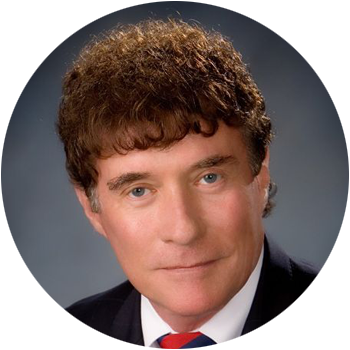2 Hours | 2 CEs
This on-demand professional training program on Child and Adolescent Suicide: Prevention, Crisis Management, and Postvention is presented by David Capuzzi, Ph.D.
According to the American Association of Suicidology and the American Foundation for Suicide Prevention, the adolescent age group is now at the highest risk of suicide in one-third of all countries. This program addresses the significant concerns of suicide and adolescent and teen suicide prevention. The program also provides the training needed by counselors, social workers, and other helping professionals to effectively assist those at risk of attempting suicide.
It includes myths connected with suicide, risk and protective factors for suicide; signs and symptoms, suicidal assessment; ethical and legal issues surrounding suicide; and counseling techniques with children, adolescents, survivors, and their families. This program includes risk factors for what leads to teenage suicide. Guidelines for children, adolescent and teen prevention, crisis management, and postvention are all presented.

Intended Audience
This on-demand professional training program is intended for mental health and other allied professionals

Experience Level
This on-demand professional training program is appropriate for beginner, intermediate, and advanced level clinicians.

CE / CPD Credit
APA, ASWB, CPA, NBCC Click here for state and other regional board approvals.
Learning Objectives
Upon completion of this program you will be able to:

Describe explicit guidelines for prevention, crisis management, and postvention (follow-up) after an attempt or completion and how and when to apply them with clients

Describe awareness of the myths connected with youth suicide

Describe risk and protective factors connected with youth suicide prevention

Describe the components of the suicidal profile

Curriculum
1. Introduction
2. Understanding the Myths
3. Risk Factors
4. Protective Factors
5. The Profile
6. Prevention
7. Crisis Management Strategies
Develop a Specialty Area of Practice
Transforming mental health professionals into experts
Expert Instructors
Professional training developed and delivered by the field's leading experts

CE Credit
Earn CE credit for meaningful professional training that will elevate your practice
Convenience & Flexibility
Learn at your own pace, from wherever you might be!
CE Sponsorship Information
Palo Alto University, Continuing and Professional Studies (CONCEPT) is approved by the American Psychological Association to sponsor continuing education for psychologists. Palo Alto University, Continuing and Professional Studies (CONCEPT) maintains responsibility for this program and its content. Palo Alto University, Continuing and Professional Studies (CONCEPT) is approved by the Canadian Psychological Association to offer continuing education for psychologists. Palo Alto University, Continuing and Professional Studies (CONCEPT), SW CPE is recognized by the New York State Education Department’s State Board for Social Work as an approved provider of continuing education for licensed social workers #SW-0356 and the New York State Education Department’s State Board for Mental Health Practitioners as an approved provider of continuing education for licensed mental health counselors. #MHC-0073. Palo Alto University, Continuing and Professional Studies (CONCEPT) has been approved by NBCC as an Approved Continuing Education Provider, ACEP No. 6811. Programs that do not qualify for NBCC credit are clearly identified. CONCEPT Professional Training, #1480, is approved to offer social work continuing education by the Association of Social Work Boards (ASWB) Approved Continuing Education (ACE) program. Organizations, not individual courses, are approved as ACE providers. State and provincial regulatory boards have the final authority to determine whether an individual course may be accepted for continuing education credit. CONCEPT Professional Training maintains responsibility for this course. ACE provider approval period: 11/22/23-11/22/26. Social workers completing this course receive (clinical or social work ethics) continuing education credits.

